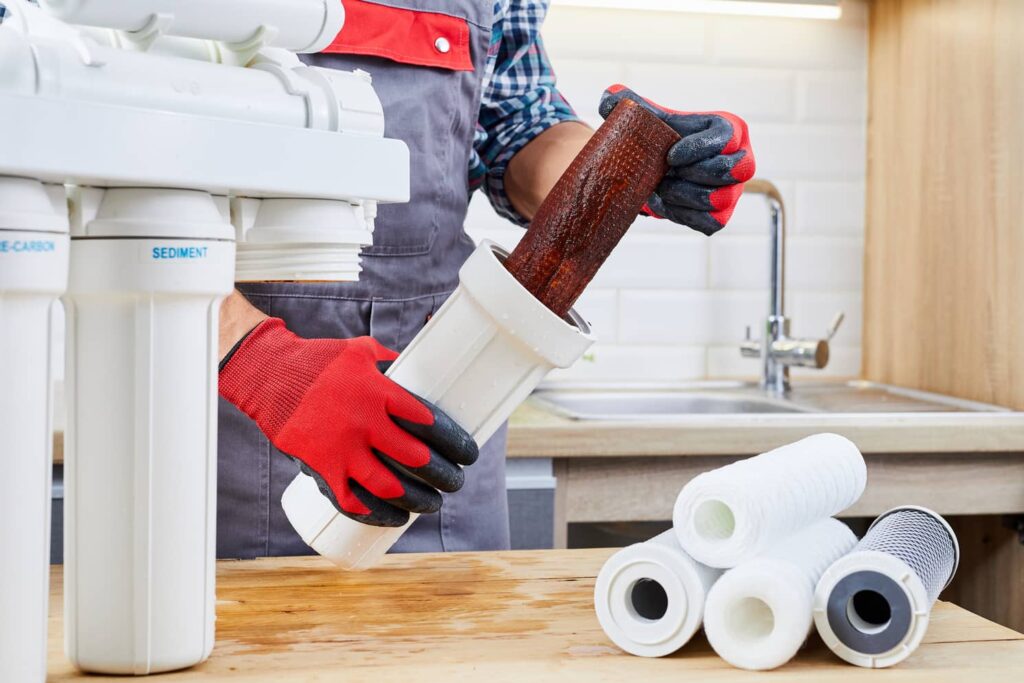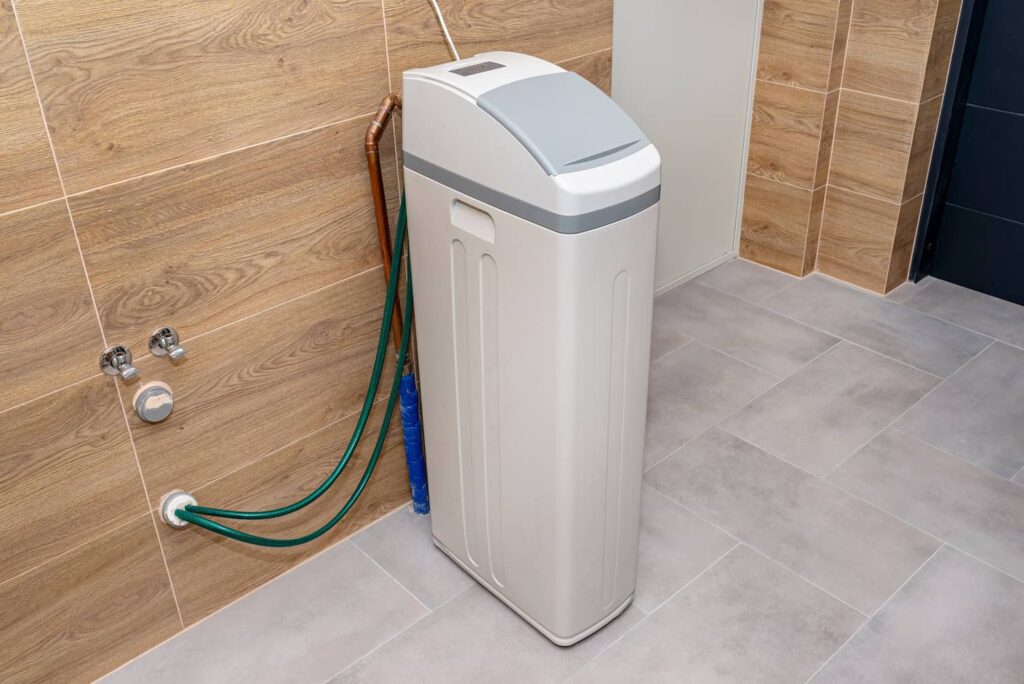As a homeowner, there are a lot of responsibilities and commitments to your home that must be attended to. Making sure that your family’s health is not in jeopardy while at home is the most important part. There are many ways that you can ensure the health and safety of your family. It starts with having the highest level of purification and filtration for your water source. You wouldn’t want your family members drinking contaminated well water out of a faucet. Making sure that the drinking water is purified is key. Wondering how to purify well water for drinking? Use a water filtration or water treatment system to keep your well water free from contaminants.
Let’s take a look below at what the many options are for water filtration and water treatment options.
What Are Water Filters?
When it comes to water filtration, there are as many options as there are with water purification systems. In some cases, these systems work hand-in-hand. A water filtration system is a mechanism to remove impurities from your well water. Removing contaminants such as bacteria, chemicals, minerals, and other sediment particles are just a few reasons a water filter is needed. Additionally, a water filter is installed between the water supply and where you use it. In some cases, you will notice a water filter installed right at the kitchen sink. Let’s take a look below at what the most common water filters are.
- Water Distillers – A water distiller boils water that creates steam. The steam is then condensed into liquid form in another container. This removes most minerals and chemicals.
- Sediment Filters – These filters have plastic cartridges with fine pores that trap sediment and other contaminants.
- Carbon Charcoal Filters – These filters use carbon filters to absorb the chemical contaminants that are in your water source.
- Reverse-Osmosis Filters – This filter type takes the water and pushes it through a semi-permeable membrane. The membrane then removes the contaminants from the water.
- Ultraviolet Light Filters – The water source is passed through a UV ray that kills the bacteria and microorganisms as they pass through the direct UV rays.

What Are The Most Common Water Treatment Systems?
Believe it or not, there are a variety of water treatment systems available to the homeowner. Selecting which one is completely up to the homeowner and the needs of your plumbing system. Be sure to consult a professional to test your water quality and select the one that works for the purification of your well water. Let’s take a look below at what the choices are.
- Disinfection – This is a chemical process that is used to kill or deactivate all pathogenic microorganisms. The use of chlorine, chlorine dioxide, or ozone can neutralize the microorganisms. Physical disinfectants include electronic radiation, extreme heat, and ultraviolet light.
- Filtration Systems – Using a water filtration system allows you to remove impurities that are already present in the water source. The use of a physical barrier, chemical barrier, or biological process are ways to filter out the impurities.
- Distillation Systems – This occurs when water is boiled and the steam from the water is gathered and condensed in another container. The steam is pure water droplets, while the impurities are left in the container behind.
- Water Softeners – This treatment system will use sodium or potassium ions to reduce the hardness of your well water. The potassium ions or sodium will replace the calcium and magnesium ions or heavy metals. Those two naturally occurring minerals are what cause the water to have an increased hardness level.
Other Recommended Maintenance
Now that you know how to purify well water for drinking, you can read up on why your well water is brown. Understanding how to turn your well water from brown back to natural clear water is key. You will want to test your well water as contamination is typically the main reason.
Next, while you are researching your water purification options, you might come across ultraviolet light as an option. Be sure to read up on what type of ultraviolet light or how strong it needs to be to purify your well water. Killing bacteria and removing impurities will likely need more than just ultraviolet light.
Lastly, if you’re experiencing low water pressure from your well, you might have some sediment buildup in your plumbing. Be sure to read up on how to remove sediment from your plumbing to keep your water flowing at regular pressure.

When Do I Call A Professional?
The moment that you notice an issue with your well water, you will want to call on a professional. Using a reputable master plumber is key. There could be an array of issues with your well water and you will not want to be drinking the water if there are health concerns. Additionally, you will want to call on your local home inspection team. They can inspect the plumbing and recommend any water filtration system that might help purify your well water. Also, they can recommend a reputable master plumber to connect or replace any water purification system.
Conclusion
With water being so vital to your survival, the moment there is an issue with the purity of your water, you must act. Calling on your local plumber to repair any damage to your well or even to install a new water purification system is key. If you aren’t sure what’s going on with your well water, reach out to your local home inspection team. They can inspect your entire well water system as well as recommend a reputable master plumber. Reach out to Fox Mountain Property Inspections for a mold and air quality inspection during a full home inspection in Maryland, Pennsylvania, Virginia, and West Virginia states.




